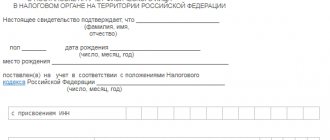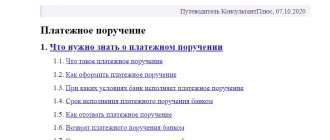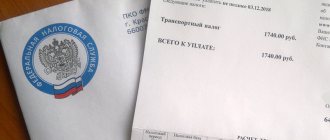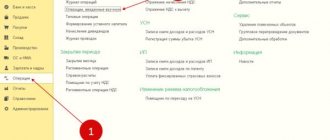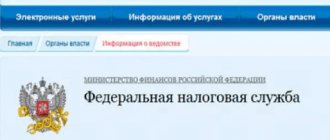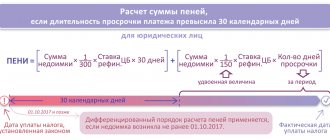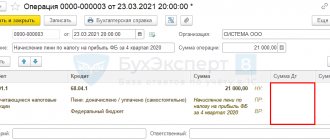You can pay the debt to the bailiffs in person at the reception, through a terminal, at the cash desk of any bank or online. As you can see, there are many ways to pay off debt.
However, not all so simple. Not all debt payment methods are good. In some cases a fee is charged, in others certain conditions must be met in order to make a payment. You will learn more about each payment method in this article.
What should you do if the debt is paid, but employees of the FSSP (Federal Bailiff Service) do not lift the restrictions and seizure of your property or continue to block your accounts? In this case, a lawyer will help. He will not only resolve the situation, but also bring the guilty person to justice, and also recover damages from the civil service.
Do you want to figure it out, but don’t have time to read the article? Lawyers will help
Entrust the task to professionals. Lawyers will complete the order at the cost you specify
1 lawyers at RTIGER.com can help with this issue
Solve the issue >
At the reception with the bailiff
You have the right to pay off the debt at an appointment with a bailiff. However, this opportunity is not available in all regions. For example, in Chelyabinsk it is not possible to pay a debt in cash. Therefore, before visiting the FSSP, make sure whether you can deposit money directly through the bailiff in your locality.
Upon receipt of banknotes, a civil service employee is obliged to give you a receipt certified by the official seal. Make sure that your name and the amount of money deposited are correct.
This method has both positive and negative aspects. Advantages of paying off debt through bailiffs:
- you will be 100% sure that the debt has been paid and the funds are in the FSSP;
- the bailiff knows that you have paid off your obligations to the collector and will not impose additional penalties on you;
- After paying the debt on the same day, you have the right to demand that the FSSP employee remove all restrictions that were imposed on your property and receive such a resolution immediately in your hands;
- there is no commission.
Now about the cons. The biggest of them is the huge queues on the day of admission (working hours: Tuesday from 10:00 to 15:00, Thursday from 14:00 to 18:00 in all regions of the country).
If you arrive at other times, there will be no crowd, but perhaps no bailiff either. He may be in court, in the prosecutor's office, at an arrest or in other enforcement proceedings.
The civil service is open from 9 to 18:00. Most often, bailiffs work overtime, but after the end of working hours they will not accept you under any pretext. If you earn your living on a five-day schedule, you will have to ask your boss for time off, which is unlikely to give you pleasure.
And the last minus is a waste of time traveling. If you live in a small village or the bailiffs are located near your home, then this, of course, will not be a problem for you.
What to pay attention to
Having chosen a method, check in advance how long each operation will take. Some banks transfer money instantly, others in 2-3 days. To avoid another delay, it is better to choose a proven and reliable option.
When the amount accumulated is very large, you can pay the debt to the bailiffs in installments. You should write an application to the FSSP requesting an installment plan. We recommend drawing up a preliminary schedule and attaching it to your application. But until the debt is fully repaid, the individual will not be removed from the bailiffs’ databases.
Payment via terminal
In every branch of the FSSP, as well as in many shopping centers, train stations, and airports, there are terminals through which you can transfer funds to the bailiffs' bank account. To do this, you need to know the number of the enforcement proceedings and the amount of your obligation.
If you do not have the necessary information on hand, you can look up this information on the FSSP website by entering your data in the line: last name, first name, patronymic. Link to resource at the end of the article.
Using the terminal is not difficult. A hint system that will be displayed on the screen will help you easily pay all your debts. The main thing is to strictly follow all instructions and carefully read the information on the monitor before clicking confirmation of payment.
A definite plus is convenience. Did you go to the store for some new clothes? Great - at the same time the debts were paid off. Have you decided to visit your grandmother in another city? This means that it is more comfortable to use the terminal located at the station.
Minuses. First of all, this is a commission. It may differ in different terminals. Therefore, before depositing money, carefully read the information on the screen. The second disadvantage is that these units are not available everywhere. In villages, hamlets and other small settlements, it is difficult to find a terminal to repay a debt to bailiffs.
How to find debt from bailiffs for payment
If no information about the debt from the bailiffs is displayed on the main page of the portal, then make a request. To do this, go through several steps:
- Go to the portal gosuslugi.ru.
- Log in to the system.
- On the main page, go to the service catalog.
- Select the "Authorities" section.
- Click on “FSSP of Russia”.
- A page will open asking for information about the legal debt.
- Select the item “Providing information on the availability of enforcement proceedings (online)”.
- On the right side, click on the line “Get a service”.
- Fill in the required information.
- After processing the request, information will appear about the enforcement proceedings that the bailiff opened against you.
- Proceed to payment by clicking the appropriate button.
- Fill in the details in the empty fields and confirm the payment.
When paying through the portal, funds are transferred to the bailiffs account usually on the same day.
Visit to the bank
In this way you also have the right to pay all debts. To do this, you will need the number of the enforcement proceedings, the amount of obligations to the claimant and the bank details of the FSSP. Don't forget to take your passport with you.
You have the right to deposit money into the bailiffs' bank account at any bank. Unfortunately, some of them charge a commission, which will be a minus. Therefore, before you pay your debt, check this information with the cashier. Today, Sberbank and VTB do not charge commission. But what will happen tomorrow is unknown.
Also a minus are the queues. Most often, this inconvenience is observed in branches of large banks. You can spend an hour, or even two hours, propping up the wall while waiting for the debt to be paid.
When transferring money to the bailiffs' bank account in this way, do not forget to take a receipt. It will be proof that you have fulfilled your obligations to the claimant.
Electronic payment systems
Paying court debt through an electronic payment system is another quick and easy way. QIWI, YuMoney, WebMoney will do. Go to your personal account, select the “Payments by legal entity details” tab, enter the data and indicate the amount.
Some applications have the ability to transfer money using a QR code. Point your smartphone camera at the receipt. As a result of scanning, all fields will be filled in automatically. This will avoid mistakes. Please note that for such operations a commission of 1-2% is charged.
Online methods
It is very convenient to pay debts to the collector through bailiffs using online services. There is no need to run somewhere to deposit money into the FSSP current account. If you have the Internet, you can do this from home, office, or even while sunbathing on the beach.
Another plus is that you don’t need to look for bailiff details. It is enough to select a civil service on an online resource, and it will substitute them automatically. There can only be one downside - system failure. When paying your debts this way, be sure to keep confirmation of the transfer.
There are several online platforms, and each has its own characteristics. But whichever one you choose, you must have a bank card or online wallet. In some cases, you can even pay with money from your mobile phone. Let's take a closer look.
Through the FSSP website
Find your debt on the resource and click on the “pay” icon. You will be offered a choice of several payment systems, both with and without instant confirmation of processing.
This service is convenient because you can choose absolutely any payment method: through a bank card (Mastercard, Visa, Mir), electronic wallet (Yandex-money, Qiwi, WebMoney), from a mobile account (if the operator is Megafon, Beeline, MTS, Tele2 ).
In addition, the resource immediately states in which cases the commission will be charged. For example, if you decide to pay bailiffs through a Qiwi wallet, then no commission will be charged.
And when transferring money via mobile phone, additional funds will be debited from you. You can find out the exact amount of the commission only by choosing a payment method.
The FSSP website can be used to transfer money not only through a computer or laptop, but also through a telephone - a special mobile version has been developed. Which is also a plus. Another positive point is that bailiffs do not need to register on the FSSP website to transfer funds. The link to this resource is provided at the end of the article.
Payment through State Services
To make a payment to bailiffs through this resource, you do not have to be an authorized user. Previously, this required registration. Now you just need to go to a certain section, provide the necessary information and make a payment.
Payment methods are the same as through the FSSP website: bank cards, online wallets, funds from the phone. There is a regular version of the State Services portal and a mobile one.
The downside of this resource is that it is more difficult to understand than, for example, the bailiffs’ website. For an unauthorized user, the menu is too confusing and there are many unnecessary links. To understand the portal, you will have to spend some time.
Methods of paying debts to bailiffs through State Services
After you have received information about the debt that has been transferred to the bailiffs, make payment using one of the available methods:
- bank card (Visa, MasterCard, Maestro, MIR);
- electronic wallet (QIWI Wallet, YuMoney, Webmoney, etc.);
- mobile phone balance (MTS, Megafon, Beeline, Yota, etc.)
In case of non-payment of debt and penalties, additional sanctions will be applied: a ban on traveling outside the Russian Federation, seizure of property and bank accounts, imposition of restrictions on driving, etc.
How to pay court debt in enforcement proceedings
The obligation to pay the collected debt arises immediately after the court decision is made or after the order is issued. The debtor can do this at any time, including before transferring documents to the FSSP. If the debt collector turns to the bailiffs before repaying the debt, enforcement proceedings will be initiated.
After this, forced deduction will begin, including at the expense of the debtor’s property and income. After initiating a case, you can also pay off the debt at any time.
If you independently pay debts under a writ of execution before the bailiffs withhold funds, you can get the following benefits:
- all arrests, bans and restrictions on the use of accounts, cards and property will be lifted;
- the bailiff will not carry out enforcement actions, including visiting the debtor’s place of residence;
- documents will not be sent for retention at the place of work;
- the sale of property through auction will not begin.
Under certain conditions, additional costs associated with enforcement proceedings can be avoided. For example, if the debt is repaid voluntarily in the first 5 days, the bailiffs will not charge an enforcement fee. In case of voluntary repayment of an administrative fine, the debtor does not face additional liability under Art. 20.25 Code of Administrative Offenses of the Russian Federation.
Information about paid debts will be removed from the FSSP website. This is possible after the debt has been fully repaid and the case has been completed by order of the bailiff. The debt can be paid in part, but in this case the amount of collection will be specified on the website. Information about open proceedings after partial payment will remain on the FSSP website.
Below we will tell you how to pay the court debt after the initiation of proceedings. If you pay a debt before opening a case with the FSSP, you must keep the supporting document. It must be immediately presented to the bailiff if he initiates proceedings for the paid debt.
Via bank
You can pay off your debt through a bank branch if you know the details for the transfer. They can be taken from the bailiff’s order or directly from the FSSP. Unfortunately, there is no service on the FSSP portal where you can generate a ready-made receipt for payment. Therefore, at the bank you will have to fill out the payment form yourself or give the details to the branch employee.
Features of paying court debt through a bank branch are as follows:
- the bank may introduce a transfer fee, i.e. these will be additional costs for the debtor;
- Bank transfers are carried out within 1 to 5 days, so the money will not immediately go to the FSSP deposit. Although, to be fair, this is not a quirk of the bank. And the “subtleties of work” of the FSSP;
- If the details are incorrectly specified, the money will be returned to the bank, which may result in a violation of the deadlines for voluntary payment.
When filling out a payment order or checking a receipt for payment, pay attention to your personal data, the number of the enforcement proceedings, and the FSSP account details.
Be sure to check the details with the bailiff's order or other document according to which you are paying the debt. It is not very difficult to cancel an erroneous bank transaction, but you will have to go back to the bank branch and look for where the error is. And at the same time, the money will not go to the FSSP.
After depositing the money, the bank specialist will issue a payment receipt. Be sure to keep this document to avoid disputes with bailiffs. 5-7 days after the transfer, it is advisable to check whether the payment has been received on the FSSP deposit. If the money has not reached the bailiff, you need to come to a personal reception with a payment document and find out the reasons for the delay.
Via mail
To pay via mail, you also need to know the details of the FSSP deposit account and the number of the enforcement proceedings. Post office employees do not provide such information. After payment, the post office will issue a receipt confirming the receipt of money. This document may also be required to prove payment of the debt.
The transfer is carried out within the time limits stipulated by the regulations of the Russian Post. Depending on the region, this period can range from 3 to 7 days.
If you pay by mail, you will also have to pay a commission. At the same time, tariffs are approved by the regional structures of Russian Post. The postal transfer fee will also become an additional expense for the debtor.
From a card, from an electronic wallet account
Payment of debt from a card or electronic wallet is possible through various online services and mobile banking applications. Here are some examples when you can make a payment to pay off a debt from a card or from an electronic wallet:
- the mobile application of any bank has a debt payment function;
- in official online services you can always choose the payment method by bank card, from an electronic wallet (for example, this is possible at government services, on the traffic police website);
- through online services on unofficial sites (you will almost always have to pay a transfer fee there).
When paying through official mobile applications of banks and government online services, you can pay off the debt without commission. After payment, an electronic receipt will be generated. It can be printed if there is a need to contact the bailiffs.
You can pay court debt through online services and mobile applications, through bank and mail
The bailiff cannot pay off the debt with cash. When paying a debt, you must first find out its exact amount and check the details of the FSSP deposit account. Be sure to keep the payment document to use as evidence.
When paying through official applications and online services, the money is credited to the FSSP deposit within 1-3 days. When transferring through unofficial services and applications, the period may be longer. We also recommend that you carefully check the site, service or application so as not to encounter scammers.
On the bailiffs website
On the FSSP website you cannot directly pay off debt under enforcement proceedings. But there is a link to go to the government services payment service, a menu for generating and printing a receipt.
Since the receipt is generated directly from information from the FSSP Data Bank, it will immediately indicate the current account details, production number, and the exact amount of debt. You can go to the bank or post office with a printed receipt.
On public services
The government services website has an online service for paying off court debts (link). You can use it if you have an account. Public services duplicate information from the FSSP Data Bank and automatically generate a payment document or receipt. Through public services you can pay court debts:
- bank cards of all payment systems;
- from a mobile phone account of any operator;
- from electronic wallets of payment systems QIWI, Webmoney, Yumani.
As indicated on the government services website, recording the payment on the FSSP deposit takes up to 5 days. After the payment is credited and identified, a mark indicating the absence of legal debt will appear on government services.
Nuances may arise if there are debts under several enforcement proceedings. On public services it is directly stated that when paying a debt, their total amount is reduced, and not the specific debt at the choice of the payer. Consequently, the bailiff will decide where to send the received money. Take this point into account if you want to pay off your debt on public services.
On the traffic police website
The administrative fine for violating traffic rules can be checked on the traffic police website. But to pay for it, the traffic police website will redirect to the public services service. Therefore, a check (receipt) for payment of the fine will be sent to your personal account on the government services website or by email.
Cash at the bailiff service
You can pay off your debt through a bailiff only through a mobile banking terminal. For several years now, bailiffs have been prohibited from accepting cash or issuing certificates and receipts. This was done to reduce the number of crimes related to corruption and misappropriation of funds by FSSP employees.
Mobile payment terminals are available directly at the FSSP division. After payment, a check will be generated. Bailiffs also use terminals during field raids and checking debtors on the roads. If the debtor does not have the opportunity to pay by card or gadget, he can be issued a receipt for payment on paper.
What debts are transferred to the FSSP
The federal service, which is responsible for executing court orders to collect funds, does not receive all information about each debtor, but only in cases where a trial has been held and a verdict has been rendered. In fact, forced collection can be initiated by any organization, representative of government agencies or even an individual, that is, any interested party in relation to the debtor. But most often the process is started for the following reasons:
- an unpaid bank consumer loan or microloan debt from an microfinance organization; this category also includes overdue credit cards, mortgage payments or car loans;
- unpaid child support for minor children or incapacitated parents;
- debt (including fines and penalties) for utility bills;
- promissory notes to third parties are a legally competent version of lending between individuals;
- fines, including automobile ones;
- purchase of goods or services in installments, arrears in payment of rent for premises and any other material obligations.
Thus, any interested party can become a plaintiff. To confirm, you must have an agreement, receipt or other evidence that the transaction was concluded, but the defendant did not pay the specified funds (in whole or in part).
We recommend not to wait for the debt to be repaid through bailiffs, but to resolve this issue without their involvement, since this will only increase the total amount (court costs and fines are included). If you have financial difficulties, notify the lender about this and find alternative solutions. For example, if serious circumstances are proven (downsizing at work, long-term illness, death of the breadwinner, accident), you can obtain a credit holiday or loan restructuring. Banks often accommodate debtors who find themselves in difficult situations.
Bankruptcy of individuals
from 5000 rub/month
Read more
Services of a credit lawyer
from 3000 rubles
Read more
Legal assistance to debtors
from 3000 rubles
more
Write-off of loan debts
from 5,000 rubles/month
Read more
We also recommend being present at the trial and actively interacting with representatives of the FSSP, and not ignoring letters and notices sent to your mailing address.


